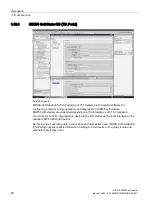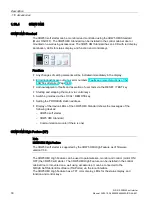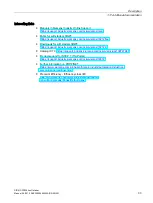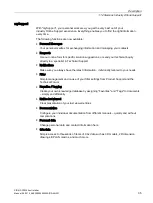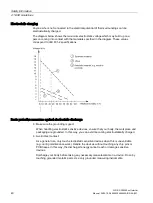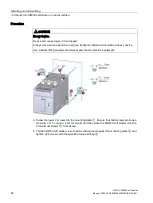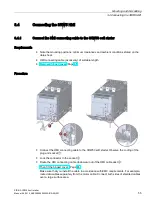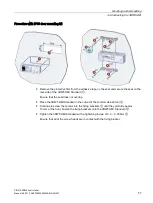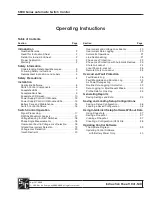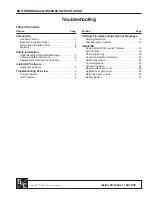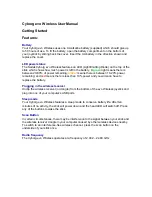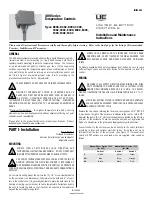
Safety information
2.3 Five safety rules for working in or on electrical systems
SIRIUS 3RW50 soft starter
42
Manual, 09/2019, A5E35628455002A/RS-AA/001
2.3
Five safety rules for working in or on electrical systems
A set of rules, which are summarized in DIN VDE 0105 as the "five safety rules", are defined
for working in or on electrical systems as a preventative measure against electrical
accidents:
1.
Isolate
2.
Secure against switching on again
3.
Verify that the equipment is not live
4.
Ground and short-circuit
5.
Erect barriers around or cover adjacent live parts
These five safety rules must be applied in the above order prior to starting work on an
electrical system. After completing the work, proceed in the reverse order.
It is assumed that every electrician is familiar with these rules.
Explanations
1.
The isolating distances between live and de-energized parts of the system must vary
according to the operating voltage that is applied.
"Isolate" refers to the all-pole disconnection of live parts.
All-pole disconnection can be achieved, e.g. by.:
- Switching off the miniature circuit breaker
- Switching off the motor circuit breaker
- Unscrewing fusible links
- Removing LV HRC fuses
2.
The feeder must be locked against inadvertent reconnection to ensure that it remains
isolated for the duration of the work. This can be achieved, for instance, by locking the
motor and system circuit breakers in the OFF position or by unscrewing the fuses and
using lockable elements to prevent them from being reinserted.
3.
The de-energized state of the equipment should be verified using suitable test equipment,
e.g. a two-pole voltmeter. Single-pole test pins are not suitable for this purpose. The
absence of power must be established for all poles, phase to phase, and phase to N/PE.
4.
Grounding and short-circuiting are only mandatory if the system has a nominal voltage
greater than 1 kV. In this case, the system should always be grounded first and then
connected to the live parts to be short-circuited.
5.
These parts should be covered, or barriers erected around them, to avoid accidental
contact during the work with adjacent parts that are still live.

